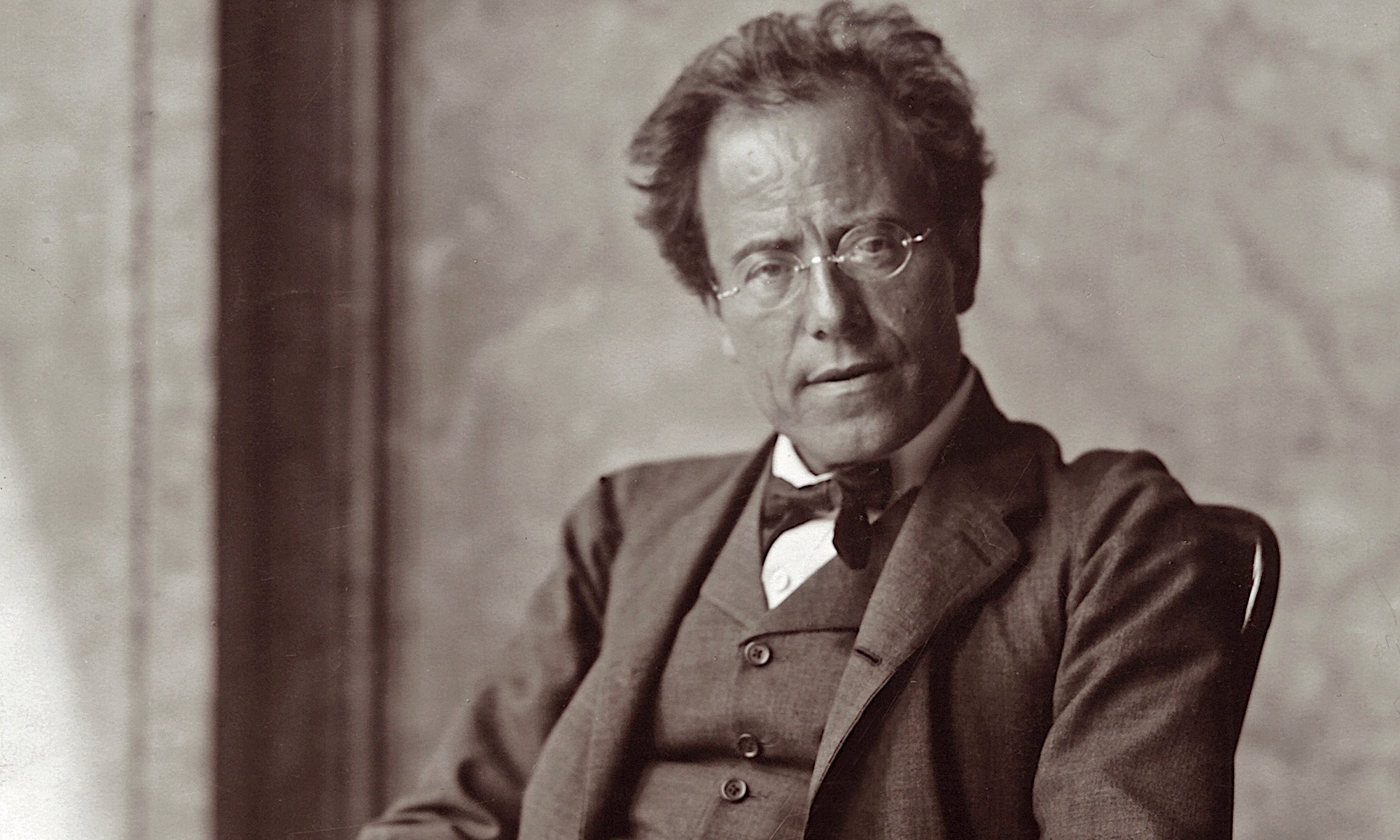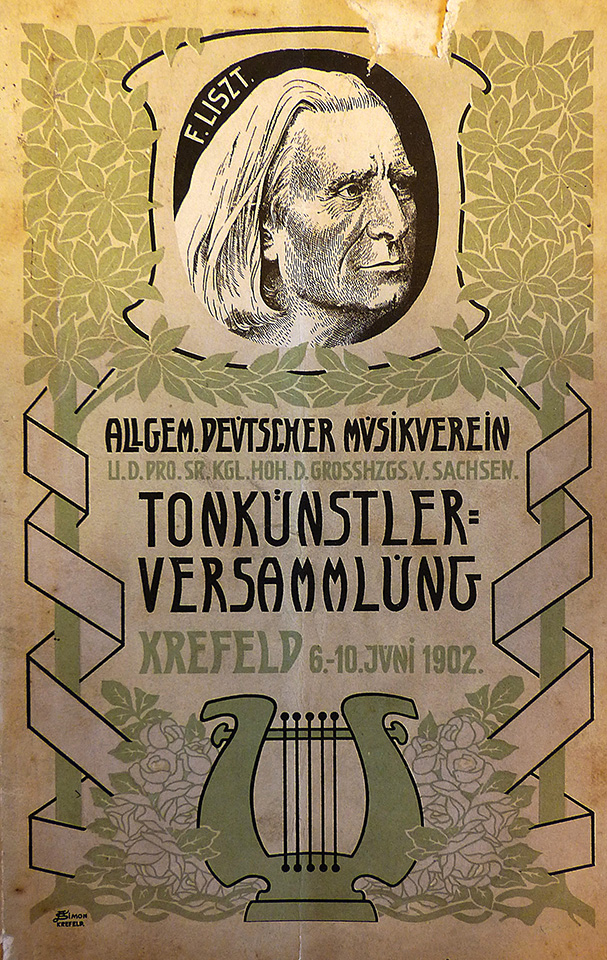- Year 1902.
- Crefelder Kapelle.
- Krefeld City Orchestra.
1902 Concert Krefeld 09-06-1902 – Symphony No. 3 (Premiere).
First a traveling theater appeared in Krefeld in 1776, when Dobler’s actor-in-residence in Krefeld made his way to Düsseldorf and Cologne on the way to Düsseldorf and Cologne. There followed guest performances of various theater groups. A first wooden theater building was erected on the Lutheran church street in 1779. In 1825, Michael Rump had a theater on the Uerdinger Landstrasse built on his own account. This wooden building in front of the town, called “Zelt” in Krefeld, served as a dance, theater and concert hall. In Rumps Theaterlokal, among others, Josef Derossi and his troupe from Düsseldorf, which at the time belonged to Albert Lortzing (1801-1851) and Felix Mendelssohn Bartholdy (1809-1847) as well as various “traveling artisans”.
After Rump’s death, the indebted theatrical lot was lost by lot to his brother-in-law, Johann Bernhard Keussen , Who rented it and then sold it. In 1859, a private opera company and a theater company were founded in Krefeld, which transferred the management of the Krefeld theater to the actor Ferdinand Wenzel on his own account. As a principal, Wenzel built his own drama set, extinguished shallow sons from the program, and instead based on Shakespeare, Lessing, Goethe, Schiller and Kleist. Because he could not finance the theater, he went to Mainz in 1865. Even his various successors could not make the theater a profitable company. After the fire of the Vienna Ringtheater in 1881, the city fathers decided to close the theater on the Rheinstraße.
In the following years, Nebeck’s Hall on the East Wall served as a playground for hiking groups. A guest performance of the Deutsche Oper Amsterdam in the spring of 1884 gave Krefelder the musical tradition of the “Monatsoper”. The one-year repertoire of a guest ensemble was played within a few weeks. In 1885, the Actien-Gesellschaft Crefelder Stadttheater was founded, which bought the former theater and adjacent buildings, and commissioned the Cologne architect Hochgürtel and the Cologne theater master Rosenberg to rebuild the theater. A new tram ensured that it was not only accessible from Krefeld, but also from the neighboring villages of Uerdingen, Hüls and Fischeln. Carl Heuser from Berne was appointed as the theater director. From then on, the program included not only acting, but also opera.
On October 2, 1886, the new Krefeld Theater was opened with the Freischütz. On February 10, 1887, the municipal council decreed to support the classical educational theater for three years with 8,000 thalers, granting the Crefelder Kapelle the right to call itself the Municipal (Stadtischen) Kapelle . In the same year Anton Otto became the new director of the Krefeld Theater. He introduced the legal entry into subscription lists in the second season. For financial reasons, Otto renounced the expansion of the musical theater, and instead spent the night on pay games from Aachen, Düsseldorf, Elberfeld and Essen. In spite of this, the theater, in addition to the municipal subsidy, had to resort to support from the large Krefeld families.
In the 19 years of his time as director, Otto developed the Krefelder Theater into a popular venue with its own ensemble. A shift of focus from the speech theater to the music theater was initiated in 1900, when Reinhold Pester came to the monthly opera in Krefeld. He brought his wife, the Primadonna of the Cologne opera Bertha Pester-Prosky and other Kölner forces, and made himself indispensable to the Krefelder within two seasons, so that in the city again the desire for their own musical theater was born. For Otto, this was the reason in 1906 to turn Krefeld’s back. In his place, Pester became the director of the theater. In Moenchengladbach, Pester had already become a theater director in 1904.


